#BJP victory 2014
Text
A Turning Point in India's Economic Landscape: How the Financial Markets Reacted to the 2014 Lok Sabha Election Results
The 2014 Lok Sabha elections in India marked a watershed moment in the country’s political and economic history.
For the first time in 30 years, a single party, the Bharatiya Janata Party (BJP), secured a clear majority in the Indian Parliament, paving the way for Narendra Modi to become the Prime Minister.
This political shift had profound implications for the Indian financial markets,…
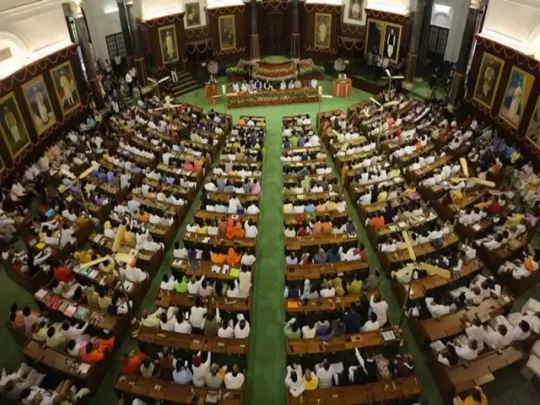
View On WordPress
#2014 Lok Sabha elections#Banking sector India 2014#BankingSector#BJP victory 2014#BJPGovernment#Economic reforms India#EconomicReforms#Election results market reaction#ElectionImpact#FinancialMarkets#Foreign direct investment India#ForeignInvestment#GST#GST Bill India#Indian financial markets#Indian stock market history#IndianEconomy#Infrastructure stocks India#InfrastructureStocks#Investor sentiment 2014#InvestorSentiment#Jan Dhan Yojana#JanDhanYojana#LokSabhaElections2014#Make in India#MakeInIndia#Market reaction to elections#MarketVolatility#Modi economic policies#Modi government policies
0 notes
Text
Narendra Modi’s electoral success in Gujarat between 2001 and 2014 and on the Indian scene since then stems from his novel blend of populism and Hindu nationalism (Hindutva). Hindutva grew out of the Rashtriya Swayamsevak Sangh (National Volunteer Organization, RSS), a paramilitary-style nationalist group founded in 1925 to bulk up young Hindus both physically and morally so they could stand up to Muslims, who were depicted as a danger to the majority.
Modi joined the RSS as a child and devoted his life to it, pursuing no other careers and even living apart from his wife. He rose through the ranks, eventually becoming the chief minister of Gujarat (his home state) in 2001. The following year, he oversaw an anti-Muslim pogrom that left some 2,000 dead— a strategy of religious polarization that won him the December 2002 regional elections. Similar successes in 2007 and 2012 made Modi the obvious prime ministerial candidate for his Bharatiya Janata Party (Indian People’s Party, BJP) in 2014.
But he left behind the RSS tradition of collective decision-making, putting himself front and center and striving to connect directly with “his” people. Rather than relying on the activist network, Modi held rally after rally where he showcased his flair for speechmaking. He also founded his own television channel, worked social media, and employed a revolutionary strategy: using holograms to simultaneously lead one rally in hundreds of places. Modi even distributed masks printed with his likeness to deepen supporters’ identification with him. In short, he saturated the public arena so as to embody the masses—a task made easier by his low-caste origins, on which he has built a complete narrative. (He worked as a teaboy in his father’s shop.)
However, the “masses” meant only the Hindu majority, which he was busy stirring up against one target in particular: Muslims. As in the 2014 elections, in 2019 “Moditva”—Modi’s idiosyncratic hybridization of right-wing nationalist ideology, Hindutva and a personality cult—triumphed on the strength of BJP landslides in the north and west. This success allowed him to bend to his will both the RSS and the BJP—whose MPs had ridden to victory on his coattails—fashioning a government of faithfuls and a parliament of yes-men.
The other institutions soon succumbed too—even the Supreme Court, once a beacon of independence. In the summer of 2014, Modi advanced a constitutional reform that would have changed the appointment process for judges, until then picked by a collegium of peers. His co-optation, opposed by the entire political class, would have replaced the collegium with a five-member commission. The Supreme Court eventually declared the amendment unconstitutional, but Modi still got his way: Of the nominees submitted by the collegium, his government finalized appointments only for those he liked. The court thus resigned itself to proposing candidates who were apt to please him.
continue reading
6 notes
·
View notes
Text
Narendra Modi Story
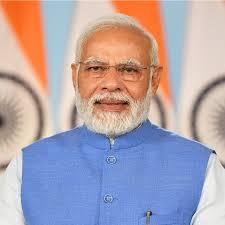
Narendra Modi (born September 17, 1950, Vadnagar, India) Indian politician and government official who rose to become a senior leader of the Bharatiya Janata Party (BJP). In 2014 he led his party to victory in elections to the Lok Sabha (lower chamber of the Indian parliament), after which he was sworn in as prime minister of India. Prior to that he had served (2001–14) as chief minister (head of government) of Gujarat state in western India.
After a vigorous campaign—in which Modi portrayed himself as a pragmatic candidate who could turn around India’s underperforming economy—he and the party were victorious, with the BJP winning a clear majority of seats in the chamber. Modi was sworn in as prime minister on May 26, 2014. Soon after he took office, his government embarked on several reforms, including campaigns to improve India’s transportation infrastructure and to liberalize rules on direct foreign investment in the country. Modi scored two significant diplomatic achievements early in his term. In mid-September he hosted a visit by Chinese President Xi Jinping, the first time a Chinese leader had been to India in eight years. At the end of that month, having been granted a U.S. visa, Modi made a highly successful visit to New York City, which included a meeting with U.S. Pres. Barack Obama.
As prime minister, Modi oversaw a promotion of Hindu culture and the implementation of economic reforms. The government undertook measures that would broadly appeal to Hindus, such as its attempt to ban the sale of cows for slaughter. The economic reforms were sweeping, introducing structural changes—and temporary disruptions—that could be felt nationwide. Among the most far-reaching was the demonetization and replacement of 500- and 1,000-rupee banknotes with only a few hours’ notice. The purpose was to stop “black money”—cash used for illicit activities—by making it difficult to exchange large sums of cash. The following year the government centralized the consumption tax system by introducing the Goods and Services Tax (GST), which superseded a confusing system of local consumption taxes and eliminated the problem of cascading tax. GDP growth slowed from these changes, though growth had already been high (8.2 percent in 2015), and the reforms succeeded in expanding the government’s tax base. Still, rising costs of living and increasing unemployment disappointed many as grandiose promises of economic growth remained unfulfilled.
This disappointment registered with voters during the elections in five states in late 2018. The BJP lost in all five states, including the BJP strongholds of Madhya Pradesh, Rajasthan, and Chhattisgarh. The rival Indian National Congress (Congress Party) won more state assembly seats than the BJP in all five elections. Many observers believed that this portended bad news for Modi and the BJP in the national elections set for the spring of 2019, but others believed that Modi’s charisma would excite the voters. Moreover, a security crisis in Jammu and Kashmir in February 2019, which escalated tensions with Pakistan to the highest point in decades, boosted Modi’s image just months before the election. With the BJP dominating the airwaves during the campaign—in contrast to the lacklustre campaign of Rahul Gandhi and Congress—the BJP was returned to power, and Modi became India’s first prime minister outside of the Congress Party to be reelected after a full term.
In his second term Modi’s government revoked the special status of Jammu and Kashmir, stripping it of autonomy in October 2019 and bringing it under the direct control of the union government. The move came under intense criticism and faced challenges in court, not only for the questionable legality of depriving Jammu and Kashmir’s residents of self-determination but also because the government severely restricted communications and movement within the region.
In March 2020, meanwhile, Modi took decisive action to combat the outbreak of COVID-19 in India, swiftly implementing strict nationwide restrictions to mitigate the spread while the country’s biotechnology firms became key players in the race to develop and deliver vaccines worldwide. As part of the effort to counter the economic impact of the COVID-19 pandemic, Modi undertook executive action in June to liberalize the agricultural sector, a move that was codified into law in September. Many feared that the reforms would make farmers vulnerable to exploitation, however, and protesters took to the streets in opposition to the new laws. Beginning in November, massive protests were organized and became a regular disruption, particularly in Delhi.
Modi’s policies backfired in 2021. Protests escalated (culminating in the storming of the Red Fort in January), and extraordinary restrictions and crackdowns by the government failed to suppress them. Meanwhile, despite the remarkably low spread of COVID-19 in January and February, by late April a rapid surge of cases caused by the new Delta variant had overwhelmed the country’s health care system. Modi, who had held massive political rallies ahead of state elections in March and April, was criticized for neglecting the surge. The BJP ultimately lost the election in a key battleground state despite heavy campaigning. In November, as protests continued and another set of state elections approached, Modi announced that the government would repeal the agricultural reforms.
2 notes
·
View notes
Text
NEW DELHI — India is scrambling to contain a diplomatic storm that has erupted in Islamic countries following controversial comments made about Islam and the Prophet Muhammad by two officials of the ruling Hindu nationalist Bharatiya Janata Party.
Saudi Arabia, Kuwait, Qatar, Oman, the United Arab Emirates, Iran and Pakistan have registered protests made by BJP’s national spokesperson during a recent televised debate.
Several of these countries summoned Indian ambassadors to denounce the derogatory statements. Calling the comments “Islamophobic,” Qatar has demanded a public apology from India. The controversy turned particularly embarrassing for India as it erupted while its vice president, Venkaiah Naidu, and business leaders were on a visit to the country.
Denouncing the statement, Saudi Arabia said it “reaffirms its permanent rejection of prejudice against the symbols of the Islamic religion.”
Besides official outrage, anger against the remarks poured out on social media in several Arab nations with some people calling for a boycott of Indian goods.
The influential Organization of Islamic Cooperation said they came in a "context of intensifying hatred and abuse towards Islam in India and the systematic harassment of Muslims." It also cited a decision by some states in India to ban the Muslim headscarf, the hijab, as well as incidents of violence against Muslims.
Rejecting the OIC’s comments as “misleading and mischievous,” the Indian foreign ministry said that the government accords the highest respect to all religions. In a statement, it said that the “offensive” comments and tweets “do not in any manner reflect the view of the government of India” and were made by individuals against whom action has been taken.
The foreign ministry criticized Pakistan, which had also condemned the remarks, calling it a “serial violator of minority rights” and saying that it should not engage in “alarmist propaganda.”
BJP spokesperson Nupur Sharma, who made the remarks, was suspended by the party while Naveen Jindal, the media head of the Delhi party unit, who had tweeted on the issue, was expelled on Sunday.
“The BJP strongly denounces insults of any religious personalities of any religion. The BJP is also against any ideology which insults or demeans any sect or religion. The BJP does not promote such people or philosophy," the party said in a statement.
Sharma said on Twitter that there was never any intention to hurt anyone’s feelings and that she spoke in response to comments made about a Hindu god.
Sporadic protests have also erupted in some Indian states as the remarks caused anger among Muslims, who are India’s largest minority, making up 14 percent of the country’s 1.4 billion people.
The remarks are being seen in the context of what critics say is a rise in hate speech targeting Muslims since the Bharatiya Janata Party came to power in 2014.
In an editorial, The Indian Express newspaper said, “The truth is that it was no sudden eruption of bigotry. The BJP’s electoral victories since 2014, and especially after 2019, have emboldened party activists and others of the saffron brigade to an extent that they indulge in casual everyday anti-minority actions.” By saffron brigade, the paper was referring to Hindu nationalists.
Political commentators said such controversies could set back India’s effort to enhance ties with Persian Gulf countries, which has been a key focus of Prime Minister Narendra Modi’s government. Tens of thousands of Indians work in the UAE and in Gulf countries like Kuwait, and New Delhi is also trying to strengthen trade ties with these nations.
The U.S. State Department, in its latest annual report to the Congress on international religious freedom, named India as among countries that were violators of religious freedom. It alleged that attacks on members of minority communities, including killings, assaults and intimidation took place in India throughout 2021.
__________________________
Had to dig around to find out what she said, can't find a quote but it's something about Aisha and her age when Muhammad married her and consummated that marriage.
Not sure which side she took.
13 notes
·
View notes
Text
PM Modi Leading in Varanasi by 600 Votes INDIA Alliance Takes Lead in Uttar Pradesh in 2024 Lok Sabha Elections
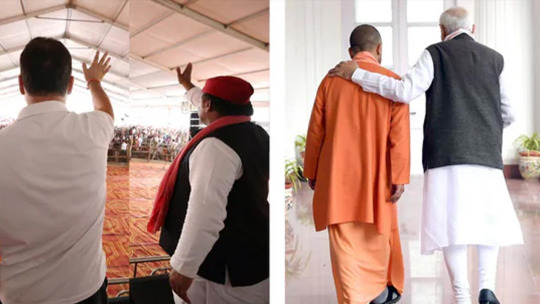
The vote counting for the 2024 Lok Sabha elections commenced on June 4, encompassing all 543 constituencies. In Gujarat's Surat, the BJP secured a victory uncontested after the Congress candidate's nomination was invalidated, and other contenders withdrew.
In Uttar Pradesh's Varanasi, Prime Minister Narendra Modi aims for a third consecutive term. This key constituency, which launched his national political career in 2014, is closely watched as the BJP-led National Democratic Alliance (NDA) vies to retain power against the opposition’s INDIA bloc, defying exit polls.
Stay updated with DXB News Network on WhatsApp for the latest developments.
Chief Election Commissioner Rajiv Kumar confirmed on June 3 that the counting of postal ballots would initiate first at all centers, adhering to the Conduct of Election Rules.
For detailed, real-time updates on each constituency, visit our Election Results page.
Post the final phase of polling on June 1, exit polls suggested a third term for the NDA, predicting a near 360-seat win, while projecting around 150 seats for the INDIA bloc. The opposition, however, dismissed these predictions as unreliable.
June 4, 2024 10:03 PM Modi Leads in Varanasi
According to the Election Commission, Prime Minister Narendra Modi leads in Varanasi with 619 votes, while Congress's Ajay Rai has garnered 35,805 votes.
June 4, 2024 09:56 West Bengal: TMC and BJP in Tight Race
In West Bengal, a fierce competition ensues between the Trinamool Congress (TMC) and the BJP as postal ballot counting begins. Reports from ABP Ananda indicate TMC's lead in three seats, with BJP and Congress leading in one each. TV 9 Bangla shows TMC ahead in five, BJP in four, and Congress in one.
June 4, 2024 09:52 Dharmendra Pradhan Leads in Sambalpur, Odisha
Union Education Minister Dharmendra Pradhan is leading in the Sambalpur constituency. This western Odisha seat is a BJP stronghold, with Pradhan competing against BJD's Pranab Prakash Das.
June 4, 2024 09:47 G. Harish Leads in Andhra Pradesh's Amalapuram
In Rajahmundry, Andhra Pradesh, BJP State President D. Purandeswari leads with 47,696 votes over YSRCP's Guduri Chakradhar, who has 38,712 votes.
June 4, 2024 09:39 INDIA Alliance Leads in Uttar Pradesh
The INDIA alliance leads in 44 of Uttar Pradesh's 80 seats, while the NDA leads in 36. The Samajwadi Party (SP) alone is ahead in 38 seats.
June 4, 2024 09:36 Market Slump: BSE Sensex Drops 2600 Points
The market sees a significant drop with the BSE Sensex falling 2600 points, erasing gains from the previous day. Adani Group stocks are notably impacted, with Adani Enterprises falling by 9%.
June 4, 2024 09:34 BJP Leads in Rajasthan
In Rajasthan, BJP candidates lead in 12 seats, Congress in 10, with one seat each for CPI(M), Rashtriya Loktantrik Party, and Bharat Adivasi Party.
June 4, 2024 09:26 Sensex Down by 2200 Points
The BSE Sensex plummets by 2200 points amidst election results.
June 4, 2024 09:22 PM Modi Trails in Varanasi
June 4, 2024 09:16 Rahul Gandhi Leads in Wayanad, Kerala
Rahul Gandhi of the Indian National Congress leads in Wayanad with a margin of 13,163 votes as of 9:09 a.m.
June 4, 2024 09:10 BJP Leads in Madhya Pradesh
In Madhya Pradesh, BJP leads in 23 out of 29 seats, with Congress leading in Mandla. Omkar Singh Markam of Congress leads against BJP’s Faggan Singh Kulaste in Mandla.
June 4, 2024 09:05 Kiren Rijiju Leads in Arunachal West
In Arunachal Pradesh, BJP’s Kiren Rijiju leads in Arunachal West, while Congress leads in Arunachal East. The state saw a 77.68% voter turnout.
June 4, 2024 09:00 Omar Abdullah, Mehbooba Mufti Trailing in J&K
In Jammu & Kashmir, Sajad Lone of People’s Conference leads in Baramulla, and Mian Altaf of National Conference leads in Anantnag, with former CMs Omar Abdullah and Mehbooba Mufti trailing.
June 4, 2024 08:46 NDA Leads in Bihar
In Bihar, the NDA leads in 19 of 40 seats, while the Mahagathbandhan leads in 10 seats.
0 notes
Text
Anurag Thakur: A Multifaceted Leader in Indian Politics and Cricket
Anurag Singh Thakur, a dynamic personality, has established himself as a significant figure in Indian politics and cricket. Representing Hamirpur, Himachal Pradesh, in the 17th Lok Sabha, Thakur's career is marked by a diverse array of roles ranging from an industrialist, farmer, cricket player, to a prominent political leader. His journey is a testament to his versatility and commitment to serving his country in multiple capacities.
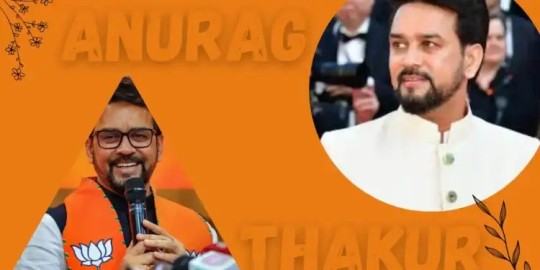
Early Life and Education
Anurag Thakur was born on October 24, 1974, in Hamirpur, Himachal Pradesh. He is the son of Prem Kumar Dhumal, a notable political figure, and Sheela Devi. Thakur's early education took place in Jalandhar, Punjab, where he attended Doaba College. He earned a Bachelor of Arts degree, laying the academic foundation for his future endeavors in various fields.
Cricketing Career
Initial Foray into Cricket
Anurag Thakur's passion for cricket saw him participate in the Ranji Trophy in November 2000, representing Himachal Pradesh against Jammu and Kashmir. His involvement in cricket extended beyond playing; he also served as the president of the Himachal Pradesh Cricket Association (HPCA) during the 2000-01 season. His leadership and participation in cricket were pivotal in meeting the Board of Control for Cricket in India's (BCCI) prerequisites for state selectors, requiring participation in at least one first-class match.
Administrative Roles and Challenges
Thakur's administrative journey in cricket reached its zenith when he became the BCCI president in May 2016. His tenure, however, was cut short in January 2017 by a Supreme Court order due to issues related to compliance with court directives and providing false testimony. Despite the setback, Thakur's contributions to cricket administration were significant, particularly in navigating the legal challenges surrounding the ownership of the International Cricket Stadium in Dharamshala.
Political Career
Entry into Politics
Anurag Thakur's political career commenced in 2008 when he won a byelection to the 14th Lok Sabha, defeating Congress Party candidate O.P. Rattan with a substantial margin of 174,666 votes. This victory marked the beginning of a long and successful political journey.
Parliamentary Contributions
Thakur was re-elected to the 15th Lok Sabha in 2009, defeating Narinder Thakur of the Congress Party by 72,732 votes. During his tenure, he served on the Standing Committee on Transportation, Culture, and Tourism and was a member of the Prime Minister's consultation committee.
In the 2014 elections, Thakur secured his third term in the 16th Lok Sabha by defeating Rajinder Singh Rana of the Congress Party with a margin of 98,403 votes. His active participation in the General Purposes Committee and the Joint Committee on the Right to Fair Compensation and Transparency in Land Acquisition underscored his legislative acumen.
Continued Success
The 2019 elections saw Thakur re-elected to the 17th Lok Sabha, defeating INC rival Ram Lal Thakur with an overwhelming majority of over 300,000 votes. His appointment as a Minister of State in the Finance and Corporate Affairs division further solidified his role in shaping India's economic policies.
Military Service
Anurag Thakur made history by becoming the first Bharatiya Janata Party (BJP) member to be promoted to the rank of a regular commissioned officer in the Territorial Army in July 2016. This achievement highlighted his dedication to national service and added another dimension to his multifaceted career.
Personal Life
Anurag Thakur married Shefali Thakur on November 27, 2002. Shefali is the daughter of Gulab Singh Thakur, a former minister in the Himachal Pradesh government. Thakur's family background and personal life have been supportive pillars in his illustrious career.
Awards and Recognitions
Thakur's contributions have been recognized with several awards. In 2011, he was honored with the Best Young Parliamentarian Award, acknowledging his dynamic role as one of India's youngest parliamentarians. In 2019, he received the Sansad Ratna Award for his exceptional work during the 16th Lok Sabha term.
Controversies and Statements
Anurag Thakur's political career has not been without controversies. In January 2020, he faced criticism for echoing a provocative statement at a BJP gathering. Additionally, his interaction with the media has sometimes been contentious, notably on March 1, 2020, when he accused the media of misinformation regarding certain issues.
Conclusion
Anurag Thakur's journey from a cricketer to a prominent political leader and military officer showcases a remarkable blend of talent, dedication, and resilience. His diverse career, marked by significant achievements and challenges, reflects his commitment to serving India in various capacities. As he continues to shape the future of Indian politics and cricket, Thakur's multifaceted legacy will inspire many for years to come.
0 notes
Text
Mallikarjun Kharge’s Vision for India: Development Over Divisiveness in the 2024 Lok Sabha Elections
Mallikarjun Kharge, the Congress party president, is leading the charge in the 2024 Lok Sabha elections, a pivotal contest for his party and the nation. After facing significant defeats in 2014 and 2019, where the Congress secured only 44 and 52 seats respectively, Kharge is determined to steer the party to victory. As the chairperson of the INDIA bloc, a coalition of opposition parties, Kharge believes that the upcoming elections are crucial for preserving the Constitution, democracy, and independent institutions in India. In this exclusive interview with Frontline, Kharge discusses the Congress’ strategy, the importance of the 2024 elections, and his criticisms of the BJP-led government.
The Significance of the 2024 Elections
Kharge emphasizes the transformative nature of the 2024 elections for both the Congress and the country. He is confident that the INDIA alliance will secure a majority to oust the BJP, which he accuses of being “power-drunk.” According to Kharge, this election is not only about changing the government but also about protecting the Constitution and democracy. He warns that the BJP and RSS leaders are aiming for a two-thirds majority to amend the Constitution, potentially undermining reservations for SCs, STs, and OBCs. This, he argues, makes the election critical for safeguarding these provisions.
Why Vote for Congress?
Kharge outlines the reasons why voters should choose the Congress party in the 2024 elections. He highlights the Congress manifesto, “Nyay Patra,” which details the party’s roadmap for national growth. He asserts that the electorate is disillusioned with the ten years of the Modi government, citing issues like unemployment, inflation, and declining incomes. Despite the BJP’s control over major media outlets, Kharge believes that the Congress has effectively voiced public dissatisfaction. He accuses Prime Minister Narendra Modi of lying and insists that the politics of development will triumph over communalism and divisiveness.
Addressing Disarray in Congress
Responding to criticisms about internal disarray, Kharge refutes claims of widespread desertions, attributing any withdrawals to threats and bribes from the BJP. He cites examples of electoral malpractice, such as in Surat and Indore, to illustrate how democracy is being undermined. He acknowledges that the party has faced challenges but notes that many members have remained loyal or returned. Kharge emphasizes the importance of identifying and excluding candidates with low commitment to the party’s ideology.
Rahul Gandhi’s Decision and Senior Leaders’ Roles
Kharge explains Rahul Gandhi’s choice not to contest from Amethi, highlighting the significant emotional connection the constituency has with the Gandhi family. He expresses confidence in the Congress candidate for Amethi, K.L. Sharma, supported by Priyanka Gandhi’s campaign efforts. Addressing the absence of some senior leaders in the electoral race, Kharge clarifies that many, including Digvijaya Singh and Adhir Ranjan Choudhary, are actively involved in managing the election campaign.
Controversial Remarks and BJP’s Tactics
Kharge addresses the controversy over Sam Pitroda’s remarks on inheritance tax, dismissing Modi’s claims about the Congress manifesto as baseless. He challenges the Prime Minister to a debate on the manifesto, asserting that the Congress has never aimed to confiscate property. Kharge criticizes the BJP for its alliance with the JD(S) in Karnataka despite allegations of sexual assault against a JD(S) MP. He also dismisses concerns about the alliance’s electoral strength, arguing that BJP’s previous victories in Karnataka were achieved through money power and not genuine public support.
Congress’ Commitment to Welfare and Development
Kharge reiterates the Congress’ commitment to welfare schemes, countering Modi’s derisive remarks about such initiatives. He highlights the party’s track record in implementing welfare measures, such as the National Food Security Act, and promises to double the free food grains provided to the poor from 5 kg to 10 kg. Kharge accuses the Modi government of rebranding Congress-initiated schemes and claims that the Congress’ focus on welfare will resonate with voters.
Challenges and Aspirations for the Future
Kharge acknowledges the challenges of leading the Congress at a time when the party is perceived to be struggling. However, he remains optimistic, pointing out that the party’s resilience has unsettled the BJP. He predicts that the INDIA bloc will secure more than 272 seats, promising a government focused on social justice, progressive policies, and economic growth.
The Importance of Caste Census and Electoral Reforms
Kharge defends the Congress’ support for a caste census, stating that it is necessary for ensuring social justice and not merely an electoral strategy. He criticizes the BJP for distorting facts and spreading lies about the Congress manifesto. Kharge calls for greater transparency in electoral donations and opposes the current system of electoral bonds, which he claims enables government manipulation and extortion.
Read more: Marketing News, Advertising News, PR and Finance News, Digital News
0 notes
Text
"Look At The Irony": Prashant Kishor Party's Fact-Check As BJP Rumours Swirl
Social media is abuzz with a screenshot claiming that Bharatiya Janata Party (BJP) has appointed poll strategist and politician Prashant Kishor as their national spokesperson. Prashant Kishor's party, Jan Suraaj, has issued a statement saying that the so-called BJP letter is fake.
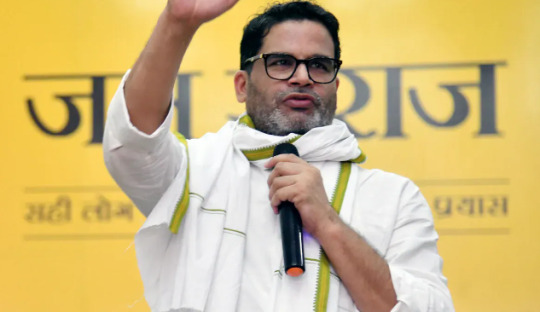
Prashant Kishor's party also hit out at the Congress, accusing its leader Jairam Ramesh of sharing the fake image. On its official X handle, Jan Suraaj shared a screenshot that they claimed proved that the document was shared by the senior Congress leader on WhatsApp.
"Look at the irony! Congress, Rahul Gandhi You all talk about fake news and claim to be the victims. Now see yourself how the head of Communications of Congress Party, Jairam Ramesh, apparently a senior leader, is personally circulating a fake document," the party said in the post.
The image shows a BJP letterhead claiming that party president JP Nadda has appointed Prashant Kishor as the party's national spokesperson. It was shared by several users on X and Facebook.
The image went viral after Mr Kishor predicted a victory for Prime Minister Narendra Modi and the BJP in an exclusive interview with NDTV on Tuesday.
Mr Kishor, who had worked with PM Modi and the BJP during the 2014 polls, said that the BJP's tally in this election may hover around its 2019 score of 303 or better than it. He also credited the ruling party with shifting the election discourse from merely crossing the half-way mark to winning 370 seats in the Lok Sabha.
"In the last three-four months, the discussion has centred around '370' and '400 paar'. Consider it a BJP strategy or Opposition's weakness, but the BJP has entirely shifted the goalpost from 272 to 370. This has benefitted the BJP. Now, no one is saying Modi ji will lose, they are saying they may not get 370 seats," said the poll strategist.
0 notes
Text
Jayant Sinha Responds To BJP's "Didn't Vote, Attend Rallies" Notice
Former Union Minister and MP Jayant Sinha on Wednesday said that he was "surprised" to receive the BJP's show cause notice asking him why he didn't vote in the ongoing Lok Sabha elections and did not take part in election campaigning.
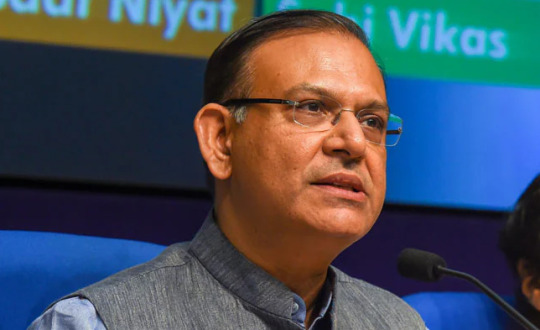
In response to BJP's Jharkhand general secretary Aditya Sahu's letter, Mr Sinha said that he voted through the postal ballot process as he was overseas for "personal commitments".
"I was very surprised to receive your letter and discover that you have released it to the media as well," Mr Sinha, who is the sitting MP from the Hazaribagh seat in Jharkhand, said in a two-page letter to Mr Sahu.
Responding to Mr Sahu's charge that he has not been taking part in "organisational work and election campaigning" ever since Manish Jaiswal was declared a candidate from the Hazaribagh Lok Sabha seat, Mr Sinha said that he was not invited for "any party events, rallies or organizational meetings".
"The party announced Shri Manish Jaiswal ji as its candidate for the 2024 Lok Sabha elections. My endorsement was evident when I congratulated Shri Jaiswal ji on March 8, 2024, an event that was well-documented on social media and demonstrated my unwavering support for the party's choice," he said.
"If the part wanted me to participate in any election activities, you could surely have contacted me. However, not a single senior party official or MP/MLA from Jharkhand reached out to me. I was not invited to any party events, rallies, or organizational meetings," he said.
Jayant Sinha, who in March had announced that he wouldn't contest the 2024 Lok Sabha polls, also said that he had requested BJP national president JP Nadda to relieve him from his "direct electoral duties".
"I withdrew from the Lok Sabha elections on March 2. After consulting with Shri Nadda ji and getting his explicit approval, I made it clear publicly that I was not going to be involved in these elections. I am happy to support the party on economic and governance policies and have continued to do so," the two-term MP told Mr Sahu.
Mr Sinha also said that on April 30, he received a call from Mr Jaiswal inviting him to his nomination rally on May 1, but he couldn't attend "due to the late notice"
"I traveled to Hazaribagh on May 2 and went directly to Shri Jaiswal ji's residence to express my regards. He was not present, so I conveyed my message to his family," he said.
Mr Sinha, who has been associated with the BJP for over 25 years, also stated that his "development and organizational work in Hazaribagh have been appreciated widely", that also reflected in his "record" victories in the 2014 and 2019 general elections.
"Given my contributions to the party and the circumstances detailed above, the public issuance of your letter is unseemly. Your approach demoralizes dedicated party workers and undermines the party's collective efforts. Additionally, despite my loyalty and hard work for the party, it appears that I am being unjustly targeted," he told Mr Sahu.
"We could have certainly spoken in person or on the phone at any time to address any of your misgivings. As the party official responsible for the Hazaribagh Lok Sabha elections, you could have reached me at any time. To send me a letter after the elections are over is incomprehensible," he said.
0 notes
Text
"If BJP Wins, But Less Than 370, Market May…"
Poll strategist Prashant Kishor today credited the BJP for shifting the election discourse to winning 370 seats from just crossing the halfway mark in the Lok Sabha. However, a failure to achieve that mark may disappoint the share market, noted Mr Kishor in an exclusive interview with NDTV's Editor-in-Chief Sanjay Pugalia.
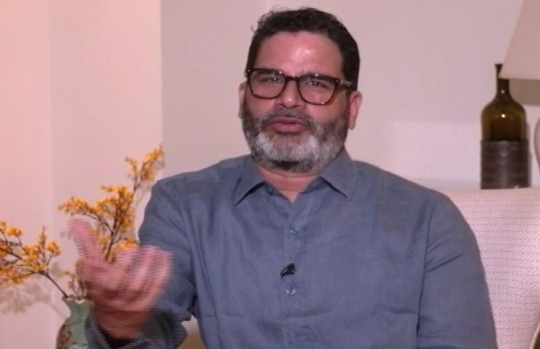
"When the expectation from a company is very high and they do not meet that despite performing well, the stock market punishes them. From this point of view, if the BJP scores less than 370 seats, this may become a talking point. The markets too may reflect this," said the poll strategist.
Mr Kishor, who had worked with Prime Minister Narendra Modi and the BJP during 2014 polls, has predicted a victory for the ruling party in the ongoing elections.
He also called the BJP's 370-seat target a "smart" move, which has benefitted them in changing the election discourse.
"In the last three-four months, the discussion has centred around '370' and '400 paar'. Consider it a BJP strategy or Opposition's weakness, but the BJP has entirely shifted the goalpost from 272 to 370. This has benefitted the BJP. Now, no one is saying Modi ji will lose, they are saying they may not get 370 seats," said the poll strategist.
However, Mr Kishor noted, even if the BJP gets 320 seats (or any figure lesser than the 370 mark they expect to cross), the saffron party will form the government.
In the 543-seat Lok Sabha, 272 is the halfway mark that a party or a coalition needs to cross to form government at the centre.
0 notes
Text
Understanding Stock Market Behavior During National Elections: A Historical Perspective
As national elections approach, anticipation builds not only in the political realm but also within global financial markets. The potential for policy changes, shifts in governance, and sweeping economic reforms significantly impacts investor sentiment, often leading to periods of market volatility and uncertainty. This blog post delves into the historical behavior of stock markets during national election periods across various countries, with a focused perspective on India. By presenting historical data, we aim to provide our readers with factual information to explore and derive their own insights, without drawing definitive conclusions.
The United States: Presidential Election Cycles and Market Trends
In the United States, the Presidential Election Cycle Theory has intrigued investors, suggesting a pattern where markets tend to perform better in the latter half of a president’s term. However, this pattern does not consistently hold true across all cycles, highlighting the complexity of correlating political events directly with stock market performance.
The European Context: Elections and Market Responses
Major European economies such as Germany, France, and the United Kingdom exhibit heightened market sensitivity during national elections. The outcomes of these elections can influence not only domestic markets but also have broader implications across the Eurozone. Generally, pro-EU parties contribute to market stability through their continued integration efforts.
Emerging Markets: Political Changes and Economic Policies
Emerging markets, known for their dynamic economies, present a diverse picture. Elections that result in a government committed to reform and market-friendly policies often elicit positive market reactions. Conversely, uncertainty surrounding elections can lead to market volatility. The immediate impact of elections on market sentiment and performance in countries like India, Brazil, and South Africa emphasizes the significant influence of political transitions on economic policy direction.
The Indian Perspective: Elections and Economic Outlook
In India, national elections hold substantial sway over economic sentiment, particularly within the realm of stock market dynamics. The outcomes of these elections often shape investor perceptions and confidence, leading to noticeable fluctuations in market behavior.
A prime example of this influence can be seen in the aftermath of the 2014 and 2019 general elections. The decisive victories of the Bharatiya Janata Party (BJP) in both instances sparked economic optimism among investors. The expectation of a stable government, along with prospects of pro-business policies and economic reforms, fueled a significant surge in the stock market.
Similarly, the lead-up to the 2019 Lok Sabha elections was marked by heightened market volatility as investors evaluated potential outcomes. However, once a clear mandate emerged in favor of the ruling party, the market responded with renewed optimism. The continuity in economic policies and reform initiatives supported by the election results contributed to substantial gains in market indices post-election.
Conversely, unexpected or inconclusive election results can trigger market volatility and uncertainty. Instances such as the 2004 Lok Sabha elections demonstrate the impact of political uncertainty on investor sentiment, leading to market downturns as stakeholders navigate the implications for future economic policies.
In essence, India's electoral landscape serves as a crucial determinant of economic sentiment, exerting a profound influence on stock market dynamics. The clarity and direction provided by electoral outcomes play a pivotal role in shaping investor confidence and market trends, highlighting the intricate interplay between politics and economics in India’s financial ecosystem.
Historical Trends and Market Reactions
Significant electoral events, such as the BJP's 2014 victory, have led to bullish market sentiment, reflecting optimism for pro-business policies and economic reforms. Conversely, unexpected outcomes or political uncertainty, as seen in the 2004 elections, have resulted in market volatility as investors navigate the implications for future economic policies.
Economic Reforms and Investor Confidence
India's experience further illustrates the significance of economic reforms and policy clarity in shaping market sentiment. Elections that pave the way for reform-oriented governments can stimulate investor optimism and confidence, contributing to bullish market trends.
Conclusion
The relationship between national elections and stock market performance is multifaceted, influenced by factors such as anticipated economic policies, political stability, and global economic conditions. While historical patterns offer insights into past market reactions, they serve more as reflections of the complex dynamics at play rather than predictive tools. For investors and market participants, understanding these nuances can enhance their strategic approach to navigating market volatility during election periods.
1 note
·
View note
Text
Modi's leadership evolution: 1.0, 2.0, what could be the big move for Modi 3.0
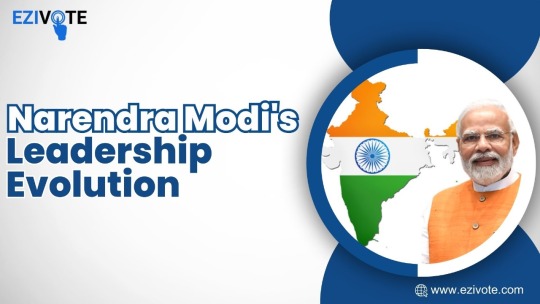
Nearly two decades of the Modi government, popularly termed as Modi 1.0 and Modi 2.0 is over and now comes the time for voter’s decision. Will Modi 3.0 arrive in the 2024 Lok Sabha elections? The answer lies in the choice of voters who chose BJP twice in the 2014 and 2019 elections. We are offering you a brief overview of how this tenure went and what were the prominent factors behind the remarkable victory. Also, we will have a close look at the factors that the BJP will be putting forward to continue this journey.
Factors that helped the Modi government win the 2014 general elections
BJP’s victory in the 2014 Lok Sabha elections gave them 272 seats out of 543 seats in the parliament. Being the first total majority win in the greatest democracy in nearly three decades, the triumph over the oldest political party, the Indian National Congress, was noteworthy. Here are the key factors behind the victory:
Hope for a better economy: Before 2014, India’s economic growth was hampered by the average percentage being 5 to 8. However, Modi’s Gujarat and its economy were on a progressive pace in comparison to other states. This hope of betterment gave the masses a good reason to cast their vote for the current government.
Fighting Corruption: Corruption is always a burning issue in the largest democracy. A lot of high-profile corruption cases came into the picture associated with the Congress-led coalition government before 2014. This was effectively used in Modi’s election campaign and he was portrayed as people’s ‘Watchman’ or ‘Chowkidar’.
Promises to the young voters: Youth in India have many hopes and aspirations about their future. Promises of education and job opportunities for sure attracted young voters hoping for betterment amid elections.
Know more ezivote
0 notes
Text
"No Tie-Up With Congress": Mamata Banerjee's Bengal Twist Stuns INDIA Bloc
The Trinamool Congress will contest the elections for Bengal's 42 Lok Sabha seats on its own steam, and only consider a pan-India alliance with the Congress after results are declared, a furious Mamata Banerjee declared Wednesday. Ms Banerjee's words deliver what appears to be a final blow to hopes the two parties - widely seen as important members of the INDIA opposition bloc - will reach any agreement.

"I had no discussions with the Congress. I have always said that in Bengal, we will fight alone. I gave them (the Congress) many proposals… but they rejected them. I am not concerned about what will be done in the (rest of the) country… but we are a secular party and, in Bengal, we alone will defeat BJP."
In further signs of fraying tempers, she also hit out at Congress MP Rahul Gandhi and his 'Bharat Jodo Nyay Yatra', which is expected to enter Bengal on Thursday but might skip Kolkata.
"They are coming to my state… but did not have courtesy to inform me, even though I am part of the INDIA bloc. So there is no relations with me, as far as Bengal is concerned," she told reporters.
Ms Banerjee has a good rapport with Congress matriarch Sonia Gandhi, but her ties with Mr Gandhi are seen as strained. She has made it clear, earlier too, she is against allowing her 'ally' to contest in Bengal.
"INDIA will be present in India (but) in Bengal the Trinamool Congress will fight. In Bengal it is only Trinamool that can teach the BJP a lesson. It can show the country the path to victory…" she had said.
Minutes later the Congress responded through comms boss Jairam Ramesh.
Mr Ramesh, who is with Rahul Gandhi and the yatra in Assam, said his party "cannot imagine INDIA bloc without Mamataji". Mr Ramesh insisted "all INDIA partners will unitedly fight Lok Sabha polls in Bengal".
Ms Banerjee's announcement has drawn a scathing jibe from the BJP's Amit Malviya, who called it a "sign of desperation". "Unable to hold her political ground, Mamata Banerjee wants to fight all seats, in the hope that she can still be relevant, after the polls…" the BJP's IT Cell boss posted on X.
The Trinamool vs Congress squabble over seat-sharing, and the larger picture of how INDIA might defeat Prime Minister Narendra Modi and his BJP, has rumbled on for weeks with no apparent resolution, with neither side willing to back down. The Congress has, so far, ignored deadlines to close a deal.
On Tuesday Ms Banerjee criticised the Congress' "unjustified" demand for 10-12 Lok Sabha seats in her state; she had offered two, pointing to its' abysmal record. It won four seats in 2014 and only two in 2019.
A senior Trinamool leader, on condition of anonymity, told news agency PTI, "(Ms Banerjee) said, 'Don't think about seat-sharing with Congress'… she said she offered two seats but they demanded 10-12".
Trinamool spokesperson Kunal Ghosh last week warned the Congress against "unjustified bargaining".
Meanwhile, Ms Banerjee, in a show of strength, has directed party leaders in Birbhum and Murshidabad district to begin planning for the combined five Lok Sabha seats on their own. The latter is key because one of its three seats is Congress MP Adhir Ranjan Chowdhury's constituency of Berhampore.
Mr Chowdhury, the Congress' state unit boss, is fiercely opposed to sharing seats with the Trinamool, and has repeatedly attacked Ms Banerjee, despite efforts from leaders on both sides to stitch an alliance. He responded to the offer by declaring Ms Banerjee owed her success to the "mercy" of the Congress.
Rahul Gandhi, asked about these attacks, played them down, insisting "Mamata Banerjee is very close to me and our party" and that it is "natural", sometimes, for the two sides to criticise each other.
But they are not going to disrupt the relations between the Congress and the TMC," he insisted.
Meanwhile, away from Bengal, the Trinamool is also unhappy over the Congress' refusal to play second fiddle to regional parties when required. The Congress has already been criticised for this by Samajwadi Party chief Akhilesh Yadav after it refused to share seats for November's Madhya Pradesh election.
Ms Banerjee on Monday said the Congress was welcome to fight 300 seats on its own, but urged the party to surrender some seats to regional parties that will have the best chance of defeating the BJP.
"Particular regions should be left to regional parties. They can fight 300 seats alone… I will help them, I will not contest those seats… but they are adamant about doing what they want," she said.
"I have the power to take on the BJP, but some people don't want to listen to us about seat-sharing. If you don't want to fight the BJP, then at least don't give away seats to it," the fiery Trinamool leader said.
Ms Banerjee is one of the few opposition leaders to have enjoyed electoral success against the BJP in recent years, after orchestrating a statement win over the saffron party in the last Assembly election.
In 2019 too she ensured her party had an edge, winning 22 seats. That, though, was less than the 34 from five years ago. Ominously, BJP went from two to 18.
0 notes
Text
I am not surprised that RPN Singh, Jitin Prasad, Scindia and now Milind Deora are leaving Congress. This was bound to happen because these were extreme opportunistic capitalist Sanghis hiding under the guise of friendship with Rahul who only knew how to stay with power. Be it the British or their supporters.
My friend told me that you should meet Rahul Gandhi. I said that I do not want to meet Rahul Gandhi but Rahul should definitely meet those people who have been writing continuously since 2014 in his support and his union on every front without any attachment. They are trying to compete but unfortunately Rahul Gandhi is not meeting them.
Rahul Gandhi is still with people like Yogendra Yadav and Prashant Bhushan who have toppled the Congress government. Rahul Gandhi is giving interviews to such people who used to criticize Congress before opening their YouTube shop, whom Rahul Gandhi will not tolerate. There is hesitation even in writing "Congress" leader who all the time puts the Congress state governments in the dock and who all the time runs anti-Congress agenda for branding themselves.
During Rahul Gandhi Yatra, he is giving interviews to such YouTube idiots who do not even have the civility to talk. The leaders, journalists, activists and writers who are openly making fun of Rahul Gandhi can meet him but he is not meeting those activists, journalists and writers, who dedicated thier life with their pen by writing for him and the party.
Today, when Congress is going through a period of renewal, Rahul should form a team which does not compromise even one percent on ideology. The success of BJP and Sangh is an example of this by standing with them regardless of victory or defeat in elections.
Remember Rahul.. A leader and a party becomes great when he supports those people who were supporting you when no one was supporting you. I have written from the heart, you should understand from the mind.
0 notes
Text
“This is just the beginning, and we need to move forward,” Modi at the inauguration ceremony of Surat Diamond Bourse
Prime Minister Narendra Modi unveiled the Surat Diamond Bourse and a new terminal at the Surat City Airport on Sunday. During the inauguration ceremony, PM Modi said that during his third term, India would become the 3rd largest economy in the world. He also added that the Surat Diamond Bourse is the largest office complex in the world.
In his address, the Prime Minister further said that the bourse measuring a whopping over 6.7 million sq ft of floor space, symbolizes “new India’s capabilities and resolutions.” The bourse, he said, represents the abilities of Indian designers, materials, and concepts.
In another event, Prime Minister Modi also unveiled a new terminal at the city’s airport. The new terminal was built at the cost of ₹353 crore and is designed with an amalgam of heritage aesthetics and sustainability features to facilitate seamless trade and travel, read a press statement.
“Surat has contributed significantly to Gujarat and the country, but in my opinion, it has even greater potential. According to me, this is just the beginning, and we need to move forward,” Modi said.
“As you all know, in the last 10 years, India has risen above the 10th position in global economic strength and is now ranked fifth in the world,” he added. “Now, your Prime Minister Modi guarantees that in his third innings, India will definitely be among the top three economies in the world.”
After assuming his office in 2014 Modi has run a second term after the Bharatiya Janata Party (BJP) led its alliance to victory in 2019. The upcoming Lok Sabha election 2024 will be the third term for NDA if the party wins.
“The government has also set targets for the next 25 years; whether it’s a $5 trillion or $10 trillion goal, we are working towards all of them,” Modi said.
“We are also working on taking the country’s exports to record heights. In this regard, the responsibility of Surat, especially its diamond industry, has increased manifold,” the Prime Minister said. “All the industry leaders of Surat are present here, and the city should decide how it can contribute to the country’s growing exports.”
For more national news India in Hindi, subscribe to our newsletter.
#werindia#leading india news source#top news stories#top news headlines#top news of the day#national news#latest national news
0 notes
Text
Exit Poll 2023: Predictions for State Assembly Elections
The prelude to December 3rd was set ablaze as exit polls for the state assembly elections in Telangana, Madhya Pradesh, Chhattisgarh, Rajasthan, and Mizoram hinted at a tense face-off between the Congress and the BJP in several states. With the assembly election results crucially impacting the 2024 general elections, these projections mark a significant semi-final showdown. However, it's important to note that exit poll predictions often vary from actual outcomes.
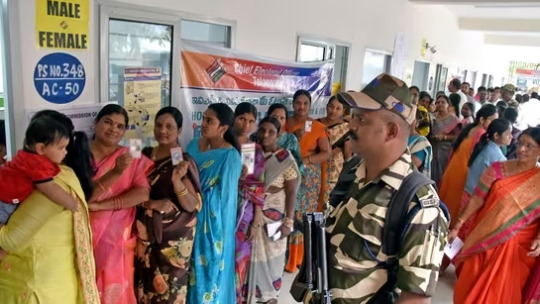
Telangana: Early predictions suggest a potential surprise in Telangana's political landscape. The Congress appears poised to ascend to power, displacing the incumbent Bharat Rashtra Samithi (BRS) into the second position, relegating the BJP to a distant third, according to projections. If realized, this would mark a historic shift since Telangana's inception in 2014, wherein K Chandrashekar Rao has held the chief ministerial position. This potential turnover comes following the transformation of KCR's party, founded in 2001, into the Bharat Rashtra Samithi and its subsequent national expansion.
Madhya Pradesh: Most exit polls lean towards a favorable outcome for the BJP in Madhya Pradesh. Despite these predictions, the Congress has contested the forecasts, emphasizing the importance of a vision over mere television. Congress leader Digvijaya Singh referred to past inaccuracies in exit polls, calling for precision in the data presented.
Rajasthan: Forecasts depict a fierce battle between the BJP and Congress in Rajasthan. The involvement of smaller parties and independent candidates may potentially influence the formation of the forthcoming government in the state.
Chhattisgarh: Projections indicate the likelihood of the Congress maintaining its grip on Chhattisgarh, with the BJP positioned as a close second. Chief Minister Bhupesh Baghel remains confident that the Congress's numbers will escalate on the counting day.
Mizoram: The Zoram People's Movement (ZPM) appears poised for a sweeping victory in Mizoram, set to unseat the Mizo National Front. Both the Congress and the BJP trail significantly in this contest.
These exit polls provide insights into the potential outcomes of the state assembly elections, suggesting potential shifts in political landscapes across these regions. The actual election results, however, remain eagerly awaited, as history indicates a degree of variability between exit poll predictions and the final electoral verdicts.
0 notes